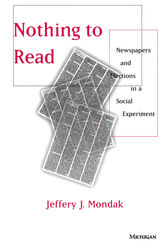
Interracial Housing was first published in 1951. Minnesota Archive Editions uses digital technology to make long-unavailable books once again accessible, and are published unaltered from the original University of Minnesota Press editions.
One of the most crucial strains on democracy today is the practice of racial segregation. In the press, in local, state, and federal government agencies, in fact, wherever people thrash out the problems of democratic living, the question is being discussed.
This book offers facts which throw new light on an important issue in the overall problem of racial segregation. Here are the results of a study comparing two kinds of public housing—segregated and non-segregated.
Two low-rent, public housing projects in which Negroes and whites live as next door neighbors were compared with two similar housing developments in which Negroes and whites are assigned to separate buildings or areas. The study reveals how the people living in these contrasting ways differ in their social relations, community morale, racial attitudes, and other significant social aspects. The research procedures used are explained, and general conclusions about changing prejudices are offered.
Social scientists, psychologists, housing officials, and community leaders concerned with the problems not only of housing but of race relations in general will find helpful guidance here.
In addition to providing much-needed data on an important social problem, the book offers a valuable demonstration of research techniques in social science.

Nothing to Read compares the information gathering and voting behavior of residents in Pittsburgh and Cleveland during the 1992 campaign season. Comparable in demographics and political behavior, the only significant difference between the two cities was the availability of local newspapers. Using a research design that combines elements of the opinion survey and the laboratory experiment, the author exploited this situation to produce an unusually sound and thorough examination of media effects on voters.
The results are startling. First and foremost, Nothing to Read reasserts the role of the newspaper in the dissemination of information acquisition. It is the only media source that can rival television in the electoral arena, and it is often more important to voters as a source for local information, including information about U.S. House races. Nothing to Read also shows that voters are more active in seeking out information than typically postulated. Indeed, many voters even differentiate between media sources for information about Senate and House contests and sources for the presidential campaign. Within limits, the electorate is clearly not a passive news audience. Nothing to Read provides a wealth of information on such related topics as the relationship between partisanship and media influence, the interplay between media exposure and interpersonal political conversations and other social interaction, and newspapers' effect on coattail voting. A unique book, Mondak's important study lays a solid foundation for all future work on the relationship between American media and politics.
Jeffery J. Mondak is Associate Professor of Political Science, University of Pittsburgh.
READERS
Browse our collection.
PUBLISHERS
See BiblioVault's publisher services.
STUDENT SERVICES
Files for college accessibility offices.
UChicago Accessibility Resources
home | accessibility | search | about | contact us
BiblioVault ® 2001 - 2024
The University of Chicago Press









